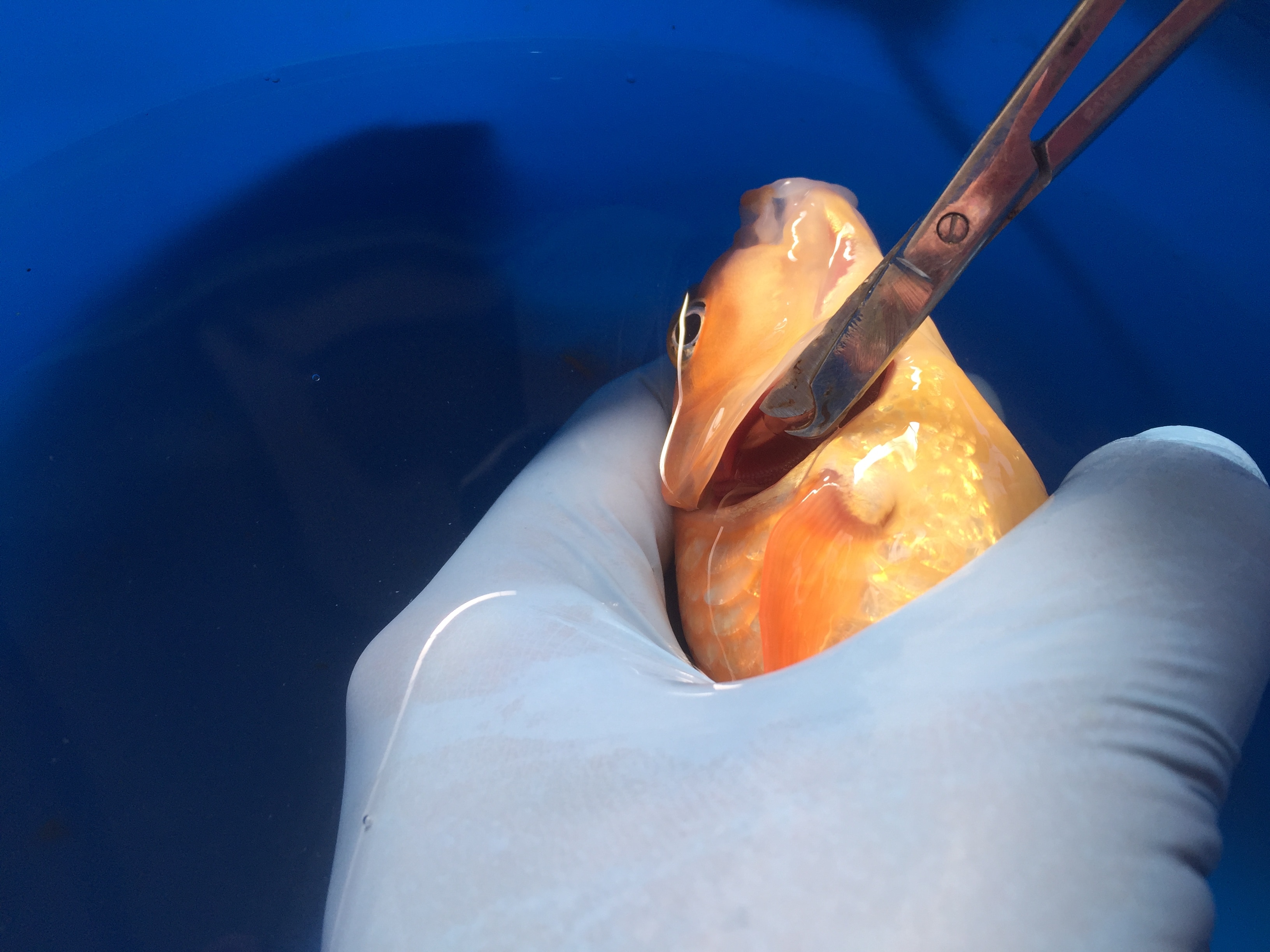What are fungal infections in fish?
Fungal infections in aquarium fish usually occur when the fish’s immune system is already weakened by illness or injury, and the fungus takes advantage of the changes in the immune system.
Fish fungi are surface-attaching, meaning they do not invade the fish’s body but remain on the surface of the skin and scales. Fungus in pet fish is most often caused by water mold, not a fungus. Water mold (a fungus-like organism that belongs to the phylum Fungi) is a fungus that causes: Oomycota) are present throughout aquatic environments and typically pose no threat to healthy fish.
Although rare, there are some very aggressive fungi, such as: Gill mycosiswhich mainly affects the gills and can cause a major debilitating disease in pet fish.
If left untreated, fungal infections in fish can be fatal. If you notice any signs of a fungal infection in your fish, contact your veterinarian.
Types of Fungal Infections in Fish
Gill/mouth rot
Typical gill and mouth rot in fish is very aggressive BranchiomycesThis fungus can be a major cause of disease in fish, but is relatively rare in pet fish species. Most external fungal infections are water mold, which appears as spots or blotches on the fish’s body.
Oomycetes
Opportunistic water molds can attach to a variety of dead tissues, including skin, scales, unfertilized eggs, etc. Fish eggs that are not treated with formalin or hydrogen peroxide or that do not hatch immediately can easily succumb to secondary fungal infections from the surrounding environment.
Fish farming operations take special steps to clean and/or disinfect the eggs immediately after hatching to ensure that the eggs are not infested with fungi from the environment.
Systemic fungi
Although rare, systemic fungal infections can be rapidly fatal to pet fish. Systemic fungal infections are more common in tanks with warmer water temperatures and higher population density. Clinical signs include increased respiratory rate, sudden death, lethargy, and anorexia (refusal to eat).
Symptoms of Fungal Infection in Fish
-
They have raised, fluffy white to brown spots on their bodies, eyes, and fins.
-
Pale gills
-
Increased breathing
-
Loss of appetite
-
Sudden death
Fungi in pet fish, including water mold, can appear as raised, bushy, or bushy growths on the skin, fins, gills, and eyes. They are usually pale, tan or yellowish in color.
Causes of fungal infections in fish
Fungal infections in fish are commonly secondary to other stressors, including:
-
Tank cleanliness issues
-
Dead fish in the tank
-
Injured or old fish
-
Overcrowding
How Veterinarians Diagnose Fungal Infections in Fish
To diagnose fungal infections in fish, your veterinarian will thoroughly evaluate the aquarium or pond environment, including water quality testing and physical examinations of seemingly healthy fish for comparison. Be sure to bring water samples for testing, separate from the water your fish will be transported in, and a history of all water treatments and any recently added fish or equipment.
Your veterinarian will take a non-invasive scraping and gill clip to examine under a microscope and may need to send a culture to a lab for further diagnosis and to confirm a fungal infection in your fish.

Treating Fungal Infections in Fish
Effective treatment for fungal infections in fish involves treating stressors in the environment, such as:
-
Water quality
-
diet
-
Excess inventory
-
Invasion
Once these other issues are resolved, the fungus will also be eliminated.
The most common treatment for fungus in freshwater fish is adding salt to the aquarium. To do an immersion treatment, you need to measure out some aquarium salt and add it to the aquarium water. When you do a water change, you need to add a small amount of salt back into the new water to maintain the salinity.
There are currently no drugs effective for treating the more aggressive strains of fish fungus. BranchiomycesInfected fish must be humanely euthanized to prevent the spread of the infection to other fish.
Recovery and management of fungal infections in fish
Once a fungal infection in fish has been diagnosed, the severity of the infection can be reduced by effective environmental management. Owners can help their pet fish recover by:
-
Ensuring proper water quality
-
Maintain a good quality diet (your veterinarian can help you determine the best diet for your fish)
-
Managing inter-species aggression
-
Avoid crowds
addition Aquarium salt A dose of 1-2g/L will help infected fish heal, inhibit fungal growth, and help them breathe easier.
Frequently Asked Questions About Fungal Infections in Fish
How do you treat fungal infections in fish?
The most common way to treat fish fungus is by keeping the fish tank in salt water for an extended period of time. Many of these fungal infections occur secondarily to stress, so it is also important to identify and eliminate the primary stressor.
How do I know if my fish has mold?
Things that are similar to fungal infections in fish include water mold, Columnaris Symptoms such as infection, dead skin and scales can appear, so a proper diagnosis from your vet is the best way to ensure your fish makes a full recovery.
Are fish fungal infections contagious?
Mild fungal infections are unlikely to be transmitted to other fish. Branchiomyces The infection is more likely to spread to other organisms in the aquarium or pond.
What kills bacteria in an aquarium?
Fungi will always be present in the aquatic environment and cannot be completely eliminated, so as long as your fish are otherwise healthy, you should not have many problems with fungal infections.
Can fish recover from the fungus?
Yes, fish can recover from a fungal infection if they are properly diagnosed and treated.
Featured Image: LordHenriVoton/iStick via Getty Images Plus




